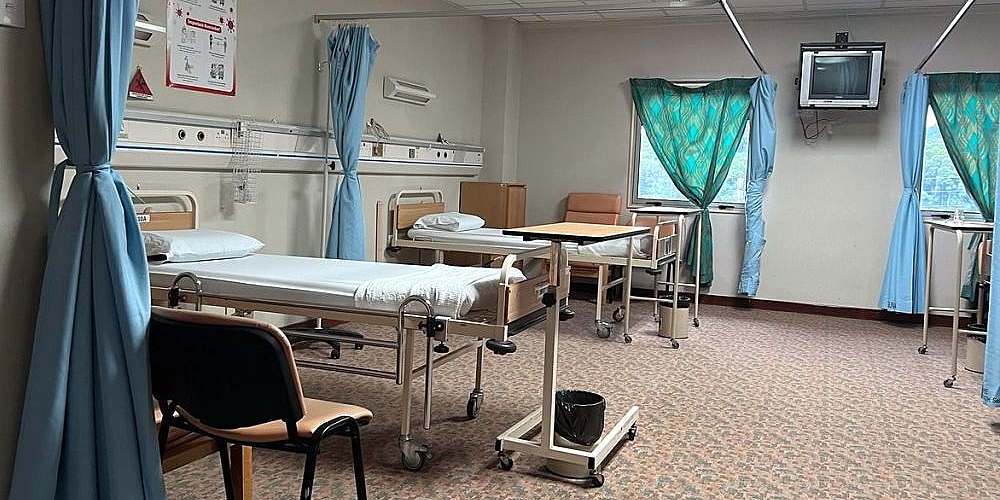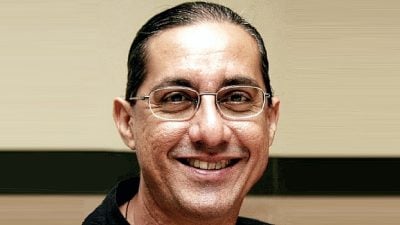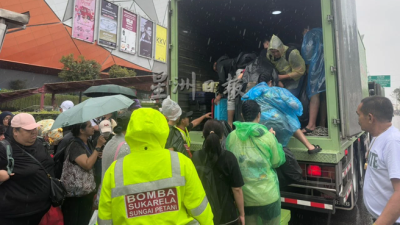
I must begin by saying that I have a lot of respect for our Health Minister Datuk Seri Dr Haji Dzulkefly Ahmad.
Dr Dzul, as we affectionately think of him, is a good man and is trying his very best to fix our public health services, the Ministry of Health (MOH).
He genuinely cares for the service and the staff.
It appears that the government does not plan to invest a lot more in the public health services, i.e. there is not going to be any major increase in health spending in the budget or near future.
In addition, we see no concrete plans for a meaningful solution to improve the conditions and remuneration of healthcare professionals that serve the people of the nation.
This ties up our Health Minister’s hands. Hence, Dr Dzul is looking for alternatives to support our health care professionals – the Full Paying Patients (FPP) is one such suggestion.
Dr Dzul, and all of us in the health profession, are acutely aware that healthcare professionals in MOH are demoralised, exhausted and that there is the enormous drain of human resource from the public to the private sector and abroad; not just of specialists/doctors, but also of nurses, pharmacists, and other allied health professionals.
The nursing shortage is at a crisis level. Healthcare professionals in the public health service see no future.
Having said this, I am of the opinion that the Full Paying Patients scheme is not a good one.
Firstly, most of us who serve in the public health service, do so because we want to make a difference in the lives of the Malaysians – especially a difference in the lives of those who cannot afford the private sector.
Secondly, most of us who work in the public health service have no time at work for anything else – from the time we arrive to the time we leave it is a non-stop roller-coaster of work.
If specialists used their time for the FPP it would mean that other patients would not be cared for and younger colleagues would have to shoulder that burden. Hence, care for these patients may be compromised.
Thirdly, who will benefit from the FPP? It will be the upper and perhaps the middle segments of the middle class; not the poor, not our sizable 60 per cent of the population that desperately needs and depends on the public health services for healthcare.
It would worsen the dichotomy that private health services have already created – those who have money can easily access healthcare while the poor are further marginalised.
Fourthly, which are the specialists that will likely take up FPP? The hardworking ones will think many times before they use the FPP, if at all.
But there are some specialists who do not pull their weight in the public health service. They come late to work, they do not see that many patients and they leave right on time.
These are likely the specialists who will grab the opportunity of the FPP scheme.
Some others who are thinking of private practice will also use the FPP to “test the waters”.
We need better, more sustainable and reformation-based changes to our public health services.
We need a progressive improvement in the conditions and remuneration for our health staff. We cannot allow them to continue demoralised without any hope for the future.
They work long hours with more and more demands placed on them. The Covid-19 pandemic unmasked how poorly we supported them and their families.
Private Health Insurance (PHI) and Social Health Insurance (SHI) are not good solutions. See the excellent commentary and insightful discussion by Jomo Sundaram and Nazihah Noor.
We need an increased spending on our public health services with an increased focus on preventive health efforts. This can come from improving tax-funded healthcare.
For far too long we have allowed our public health services to decay.
There are no easy fixes, no easy solutions. But I do believe that we can salvage our dying public health services and keep all categories of our healthcare professionals in public services.
They should be given better conditions, environment and support that allows them to focus fully on their jobs and not worry about resources for patients or their family’s needs.
Basic health is a human right and not one where citizens should have to pay to receive.

(Dato’ Dr Amar-Singh HSS is Consultant Paediatrician and Child-Disability Activist.)
ADVERTISEMENT
ADVERTISEMENT







































